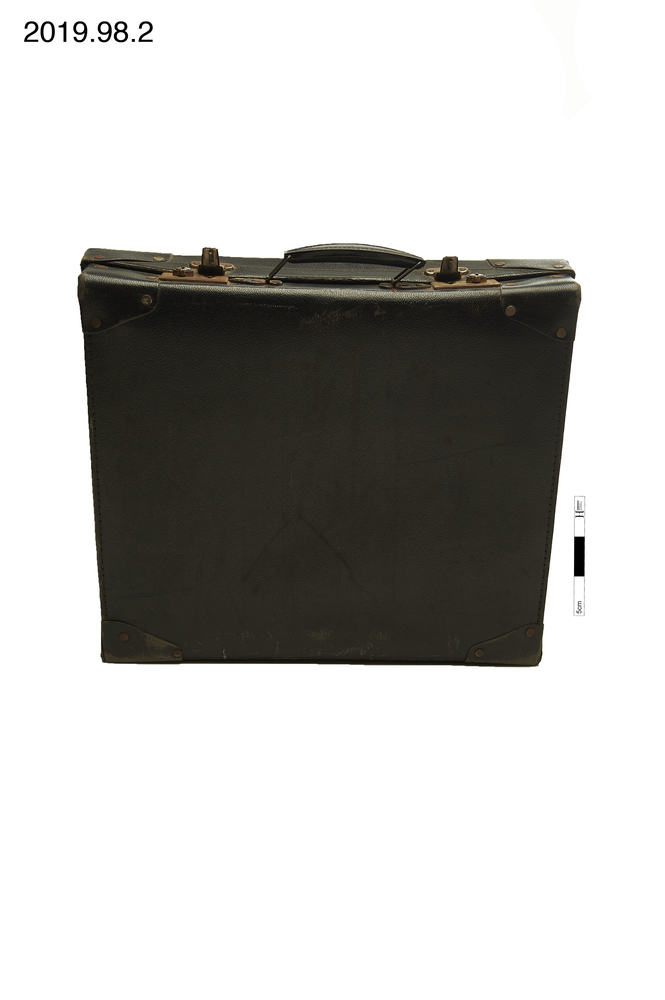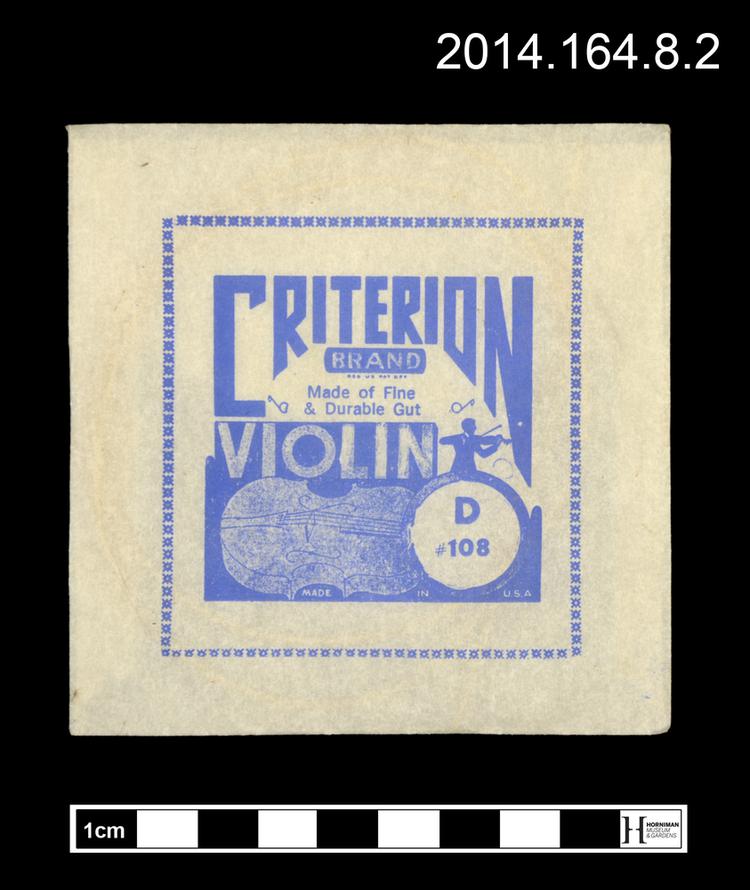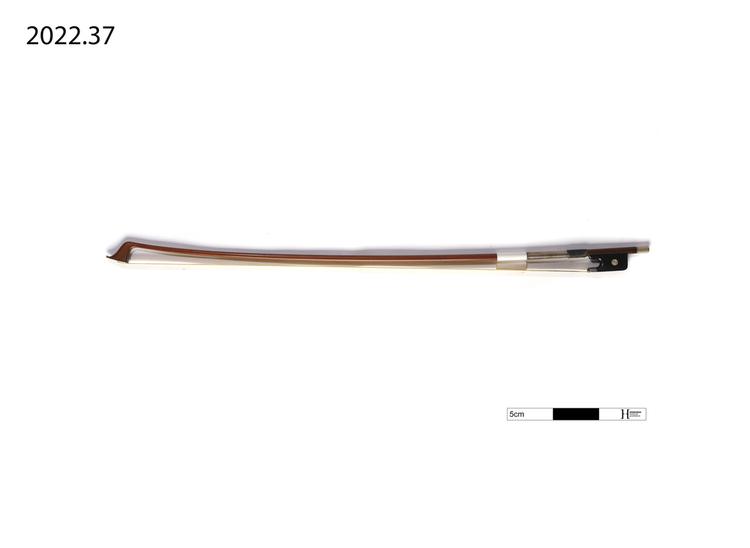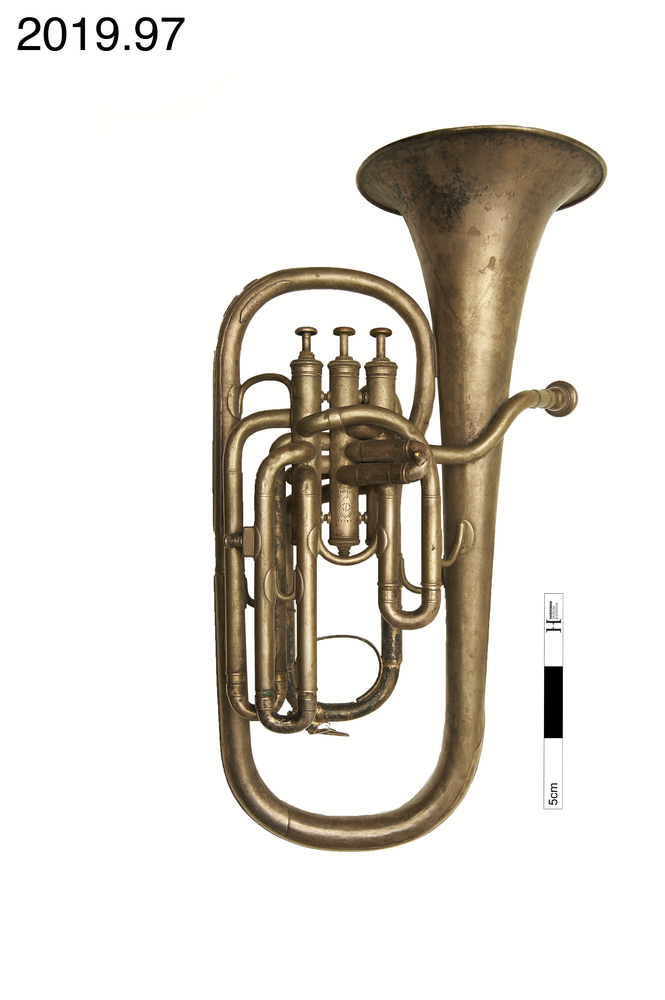
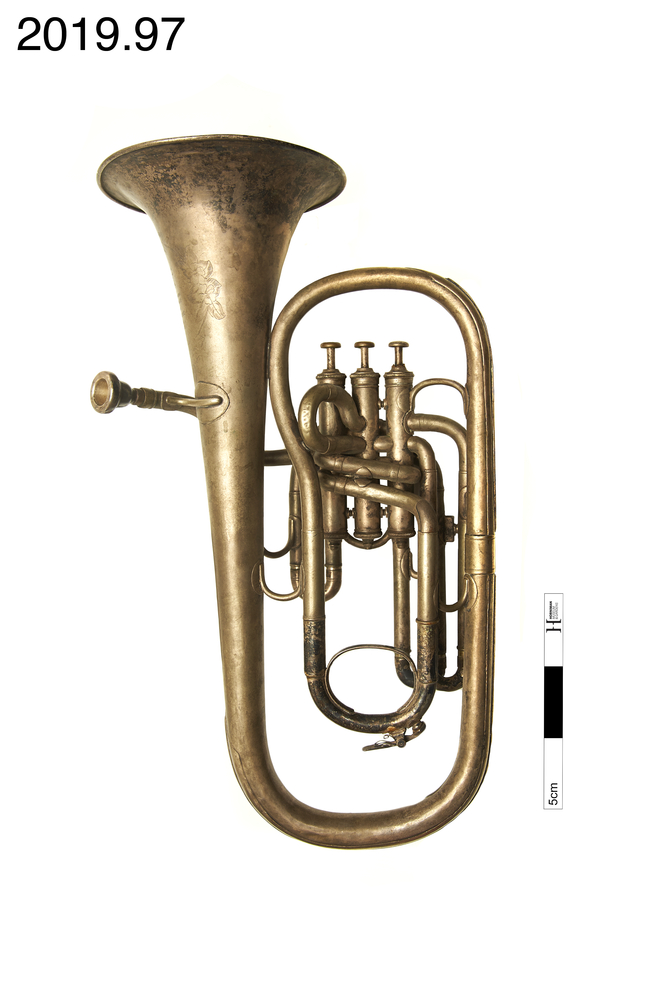
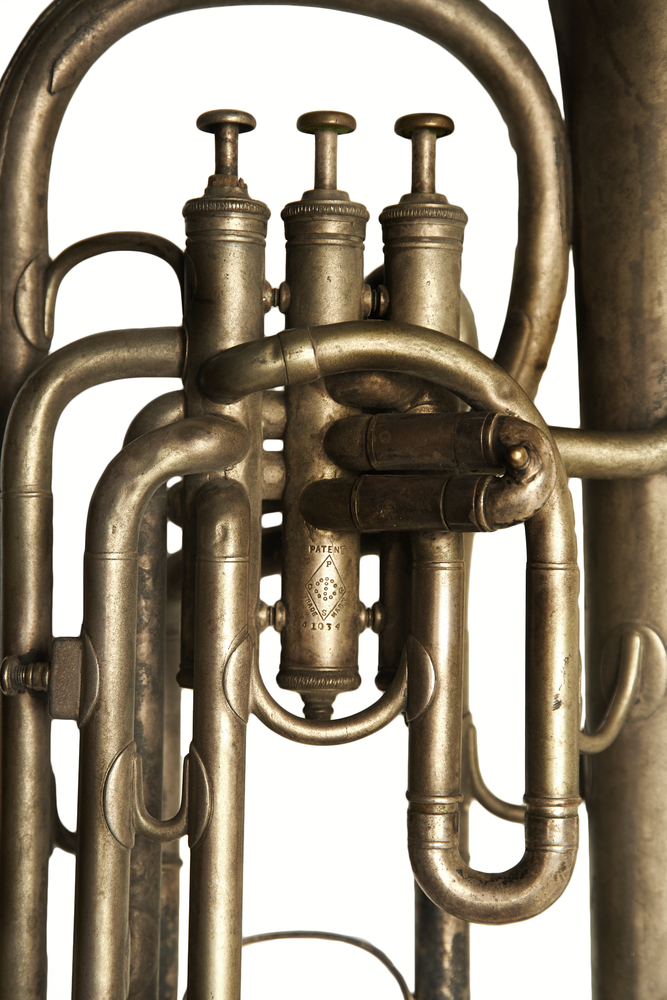
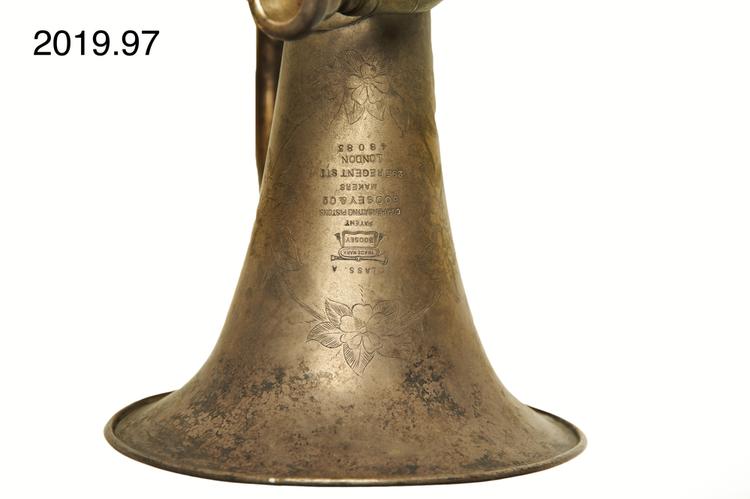
Tenor horn in E-flat by Boosey and Co., London, 1896 serial number 48083. Stamped on the bell ‘CLASS A/’; trumpet-and-banner trademark incorporating ‘TRADE MARK’ and ‘BOOSEY’; ‘PATENT/COMPENSATING PISTONS/BOOSEY & CO/MAKERS/295 REGENT STT/LONDON/48083’ all within a garland of flowers. The casing of the second valve stamped ‘PATENT’ at the top and ‘41034’ at the bottom, with a diamond-shaped trademark containing letters ‘P’, ‘C’, ‘G’, ‘S’ and pattern of 13 circles in the middle. Silver-plated brass. Double principle (three valves). Water key. Bracket with screw attachment for (absent) music card holder. With mouthpiece. This instrument originally played at high pitch, but was adapted probably 1955-1960 to play at A440. This tenor horn has had a typical adaptation with the valve slides and main tuning slide made longer; the silver plating is of a different quality to the rest of the instrument. Boosey and Hawkes did much of this work. The valves (41034, made in late 1895) were originally intended to be made up into instrument 48086, but were instead used in 48083 - which is scarcely significant since they were in the same batch of four instruments.
'Although the bell inscription states "COMPENSATING PISTONS", the system is not strictly compensating (as in the Blaikley patent) but double principle (as in a full double horn). Quite a number of cornets and tenor horns survive with this valve system.' Professor Arnold Myers 2021.09.24



